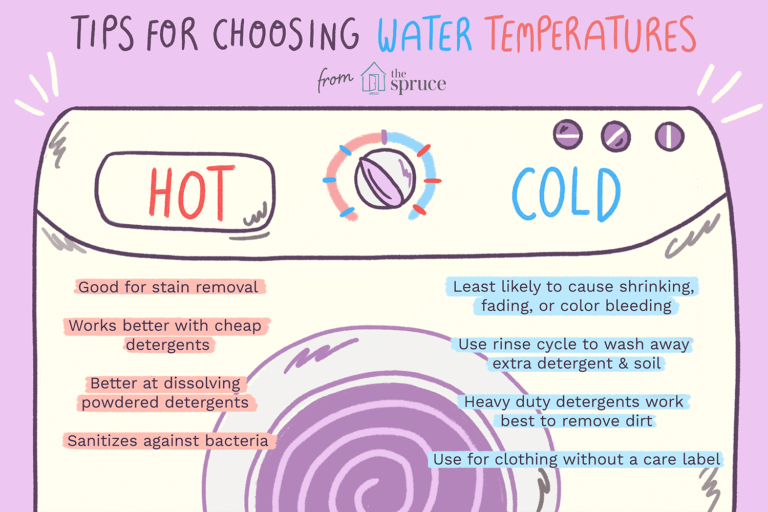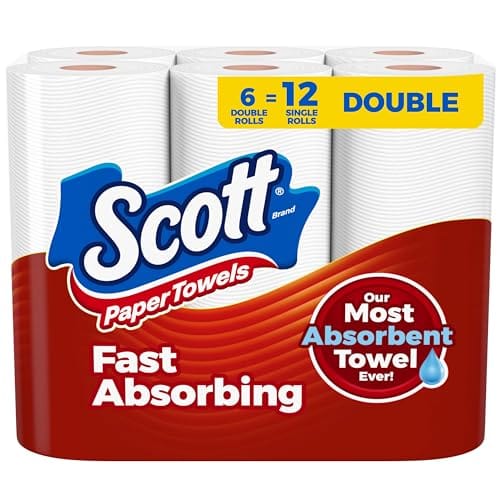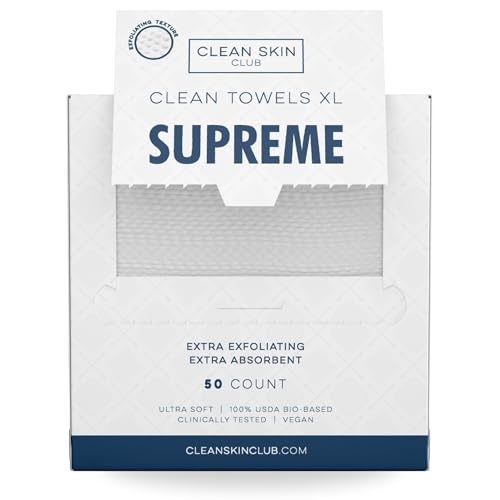Wash towels at 40°C to 60°C for optimal cleanliness. Hotter temperatures help kill bacteria and remove oils.
- Introduction To Towel Hygiene
- Ideal Washing Temperatures
- Type Of Towels And Washing Tips
- Detergents And Cleaners: What Works Best
- Preventing Towel Wear And Tear
- Removing Tough Stains And Odors
- Health Risks Of Improper Towel Care
- Maintaining Towel Freshness
- Conclusion: The Ultimate Towel Care Routine
- Frequently Asked Questions
- Conclusion
Towels need proper care to stay soft, absorbent, and hygienic. Washing them at the right temperature ensures they remain fresh and free from harmful bacteria. Most experts recommend washing towels between 40°C and 60°C. This range effectively kills germs and removes body oils and dirt.
Using a good quality detergent also helps enhance cleanliness. Over time, towels can accumulate residue and lose their softness. Regular washing at the correct temperature can prolong their lifespan and maintain their quality. Avoid overloading the washing machine to ensure thorough cleaning and rinse cycles.
:max_bytes(150000):strip_icc()/laundry-and-water-temperature-1900646-FINAL-5baa47d946e0fb0025b1cda9.png)
Introduction To Towel Hygiene
Keeping your towels clean is essential for good hygiene. Towels absorb moisture and can harbor bacteria and fungi. Proper washing ensures they stay fresh and safe for use.
The Importance Of Clean Towels
Clean towels are crucial for maintaining skin health. Dirty towels can cause skin infections and rashes. They can also spread germs and bacteria. Washing your towels regularly helps prevent these issues.
Washing temperature plays a key role. Hot water kills most germs. Cold water can leave some bacteria behind. Understanding the right temperature helps keep towels hygienic.
Common Towel Myths Debunked
- Myth 1: You can wash all towels together.
Fact: Separate towels by color to avoid dye transfer. - Myth 2: Fabric softener keeps towels fluffy.
Fact: Fabric softener reduces towel absorbency. - Myth 3: Towels don’t need to be washed often.
Fact: Towels should be washed after 3-4 uses.
| Towel Type | Recommended Wash Temp |
|---|---|
| Bath Towels | 60°C (140°F) |
| Hand Towels | 40°C (104°F) |
| Face Towels | 30°C (86°F) |
Use the right temperature for each towel type. This ensures they stay clean and last longer.
Ideal Washing Temperatures
Choosing the right temperature to wash towels can be confusing. Proper temperature ensures towels are clean and last longer. Let’s explore the best washing temperatures.
Hot Vs. Cold Water Debate
Hot water kills more germs and bacteria. It makes towels cleaner. Hot water can be harsh on fabrics. It can cause wear and tear.
Cold water is gentler on towels. It helps them last longer. Cold water saves energy and money. But it may not clean as well as hot water.
The Science Behind Temperature Selection
Temperature affects how well detergents work. Hot water helps detergents dissolve better. This leads to cleaner towels.
Cold water may need special detergents. These work well at lower temperatures. Cold water is better for colored towels. It prevents colors from fading.
| Temperature | Benefits | Drawbacks |
|---|---|---|
| Hot Water | – Kills germs – Cleans better |
– Harsh on fabric – Higher energy cost |
| Cold Water | – Saves energy – Gentle on fabric |
– May not clean as well – Needs special detergents |
Choosing the right temperature depends on your needs. If you want cleaner towels, use hot water. If you want to save energy and protect colors, use cold water.
Type Of Towels And Washing Tips
Towels come in various materials, each needing different care. Follow these tips to keep your towels fresh and long-lasting.
Cotton
Cotton towels are the most common. They are soft and absorbent. Wash them in warm water, around 40°C (104°F). This temperature removes dirt and bacteria without damaging the fibers.
- Use a mild detergent.
- Avoid fabric softeners. They reduce absorbency.
- Dry on medium heat to keep them fluffy.
Microfiber
Microfiber towels are great for cleaning. They attract dust and moisture. Wash these towels at a lower temperature, around 30°C (86°F). This helps preserve their unique properties.
- Use a gentle detergent.
- Do not use bleach or fabric softeners.
- Air dry or use a low heat setting.
More
Other types of towels include bamboo, linen, and blended fabrics. Each has specific washing needs. Below is a table with recommended wash temperatures and tips:
| Type of Towel | Wash Temperature | Special Tips |
|---|---|---|
| Bamboo | 30°C (86°F) | Use a gentle cycle and air dry. |
| Linen | 40°C (104°F) | Wash separately and avoid tumble drying. |
| Blended Fabrics | Follow the highest wash temp of the blend | Check the care label for specific instructions. |
Adjusting Wash Cycles For Different Materials
Adjusting wash cycles is crucial for towel longevity. Here are some tips for different materials:
- Cotton: Use a regular cycle with an extra rinse.
- Microfiber: Opt for a gentle or delicate cycle.
- Bamboo and Linen: Use a gentle cycle and low spin speed.
Always read the care labels. They provide the best washing instructions.
Detergents And Cleaners: What Works Best
Choosing the right detergent for washing towels is crucial. Towels are thick and absorbent, so they trap dirt and bacteria easily. This section will guide you on the best detergents and cleaners. Your towels will stay fresh and clean.
Eco-friendly Options
Eco-friendly detergents are a great choice for washing towels. They are gentle on the fabric and the environment. Here are some popular options:
- Seventh Generation Free & Clear – Fragrance-free and dye-free.
- Ecover Zero – Hypoallergenic and safe for sensitive skin.
- Biokleen Laundry Liquid – Plant-based and effective on stains.
These detergents use natural ingredients. They avoid harsh chemicals that can damage towels. Your towels will last longer and feel softer.
The Role Of Fabric Softeners
Fabric softeners can make towels feel plush and soft. But they can also reduce absorbency. Here are some tips to use fabric softeners effectively:
- Use fabric softeners sparingly. Too much can create a waxy buildup.
- Consider vinegar as a natural alternative. It softens without residue.
- Add softener during the rinse cycle. This ensures even distribution.
Avoid using fabric softeners on every wash. Alternate between regular washes and softener washes. This keeps your towels absorbent and fluffy.
| Detergent | Benefits | Drawbacks |
|---|---|---|
| Seventh Generation Free & Clear | Fragrance-free, Dye-free | May not remove heavy stains |
| Ecover Zero | Hypoallergenic, Safe for sensitive skin | Pricier than regular detergents |
| Biokleen Laundry Liquid | Plant-based, Effective on stains | Strong scent |
Choose the right detergent for your needs. Always read the labels for best results. Your towels will stay fresh, soft, and absorbent.
Preventing Towel Wear And Tear
Keeping your towels soft and long-lasting is important. Proper care can prevent wear and tear. Learn how to wash and dry towels correctly. This guide will help you maintain your towels.
Frequency Of Washes
Washing towels too often can damage them. But, you should also avoid washing them too rarely. The ideal wash frequency is twice a week. This keeps them fresh and clean.
- Wash towels every 3-4 uses.
- Use a gentle cycle for washing.
- Avoid using too much detergent.
Proper Drying Techniques
Drying towels properly is crucial for their lifespan. Incorrect drying can cause them to wear out quickly. Here are some tips for drying towels.
- Shake out towels before drying.
- Use a low heat setting on the dryer.
- Avoid over-drying to prevent damage.
- Hang towels to air dry when possible.
| Action | Frequency |
|---|---|
| Washing | Every 3-4 uses |
| Drying | Low heat or air dry |
Following these steps will keep your towels in great condition. Enjoy soft, fresh towels for a longer time.

Removing Tough Stains And Odors
Keeping towels fresh and clean can be a challenge. Stains and odors often linger. Using the right temperature for washing towels helps. But sometimes, tougher stains and odors need extra care.
Natural Remedies
Natural remedies are effective for removing stains and odors. They are also gentle on fabrics. Here are some natural solutions:
- White Vinegar: Add a cup of white vinegar to your wash. Vinegar helps remove odors and softens towels.
- Baking Soda: Use half a cup of baking soda in the wash. Baking soda eliminates tough stains and neutralizes odors.
- Lemon Juice: Apply lemon juice to stains before washing. Lemon juice acts as a natural bleach and freshener.
Using these natural remedies can keep your towels looking and smelling fresh.
When To Use Bleach
Bleach is powerful for removing tough stains and odors. But it should be used carefully. Here are some tips:
- Check the Label: Ensure your towels are bleach-safe. Some fabrics can be damaged by bleach.
- Use Sparingly: Add only a small amount of bleach. Too much bleach can weaken fibers and cause discoloration.
- Pre-Soak: Soak towels in a bleach solution before washing. This helps to break down tough stains and odors.
Using bleach can make your towels bright and clean. But always follow the care instructions to avoid damage.
| Natural Remedy | Effectiveness | Usage Instructions |
|---|---|---|
| White Vinegar | High | Add 1 cup to the wash |
| Baking Soda | High | Use 1/2 cup in the wash |
| Lemon Juice | Medium | Apply directly to stains |
Using the right methods for removing tough stains and odors helps. Your towels will stay fresh and clean for longer.
Health Risks Of Improper Towel Care
Washing towels at the right temperature is very important. Improper towel care can lead to many health problems. Dirty towels can harbor bacteria, mold, and other germs.
Bacteria And Mold Growth
Bacteria and mold love damp environments. Towels are often wet, making them a perfect home for these germs. Washing towels at low temperatures does not kill these harmful organisms.
This can lead to the spread of bacteria and mold in your home. Even if a towel looks clean, it can still be full of germs.
Skin Irritations And Allergies
Using a dirty towel can cause skin irritations. Germs on the towel can transfer to your skin. This can cause rashes, acne, or other skin problems.
People with allergies can also suffer. Mold and bacteria on towels can trigger allergic reactions. Symptoms can include sneezing, itchy eyes, and skin rashes.
Proper towel care is crucial for maintaining healthy skin. Washing towels at the correct temperature helps keep them free from harmful germs.
Maintaining Towel Freshness
Fresh towels enhance your bathing experience. Keeping them fresh requires special care. Understanding the best practices for washing and storing towels helps maintain their quality. Let’s explore effective ways to keep your towels fresh.
Storage Solutions
Proper storage is key to maintaining towel freshness. Ensure towels are completely dry before storing. Damp towels can develop mildew and unpleasant odors. Store them in a well-ventilated area. Use shelves or racks that allow air circulation.
Avoid stacking towels too tightly. This restricts airflow and leads to musty smells. Use lavender sachets or cedar blocks to keep towels smelling fresh. These natural deodorizers absorb moisture and add a pleasant scent.
Refreshing Old Towels
Old towels can lose their softness and absorbency. Refresh them with simple techniques. First, wash towels in hot water with a cup of vinegar. This removes buildup and restores softness. Follow with a second wash using half a cup of baking soda. This helps eliminate lingering odors.
Another tip is to avoid using fabric softeners. They leave residue that reduces absorbency. Instead, use dryer balls to fluff towels naturally. They also reduce drying time, which saves energy.
| Method | Benefit |
|---|---|
| Hot Water with Vinegar | Removes buildup and softens towels |
| Baking Soda | Eliminates odors |
| Dryer Balls | Fluffs towels and saves energy |
By following these tips, you can keep your towels fresh and inviting. Fresh towels enhance your daily routine and provide a touch of luxury. Implement these strategies for long-lasting towel freshness.
Conclusion: The Ultimate Towel Care Routine
Taking care of towels properly can extend their lifespan. Clean towels also ensure better hygiene. Here’s the ultimate routine for towel care that you should follow.
Summary Of Key Points
- Wash towels at 40-60°C to kill germs and remove dirt.
- Use mild detergents to avoid fabric damage.
- Avoid fabric softeners as they reduce absorbency.
- Dry towels thoroughly to prevent mold and mildew.
- Wash towels separately to avoid lint transfer.
Encouragement To Adopt Best Practices
Adopting these practices ensures your towels stay soft and clean. These habits help maintain towel quality and hygiene. Make these steps a part of your regular routine.
Here’s a quick recap of the best practices:
- Wash towels at 40-60°C.
- Use mild detergents.
- Avoid fabric softeners.
- Dry towels completely.
- Wash separately from other clothes.
Start today and see the difference in your towel’s longevity and cleanliness!

Frequently Asked Questions
What Temperature To Wash Towels?
Wash towels at 40°C (104°F) for regular use. For a deeper clean, use 60°C (140°F).
Can I Wash Towels In Cold Water?
Yes, you can wash towels in cold water. However, it may not remove all bacteria and odors.
How Often Should I Wash Towels?
Wash towels after 3-4 uses. This helps maintain hygiene and freshness.
Can Hot Water Damage Towels?
Hot water can damage towel fibers over time. Use hot water sparingly for deep cleaning.
Conclusion
Finding the right temperature to wash your towels can make a big difference. Warm water helps remove bacteria and dirt. Hot water is best for white towels to maintain brightness. Always follow care labels to ensure longevity. Using the right temp keeps your towels fresh and clean for longer.



